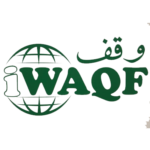EMPOWERING AFRICAN YOUTH THROUGH WAQAF
Author: Mahmoud Sow
1. Introduction
Empowering the youth of Africa is crucial for sustainable development, and one powerful tool that can contribute to this cause is the Islamic tradition of Waqf. This introduction aims to provide a clear understanding of what Waqf is, its historical significance in Islamic culture, and why we are exploring its potential for African youth empowerment.
1.1 Definition of Waqf
Waqf, rooted in the Arabic word ‘waqafa’ meaning to hold or preserve, is an Islamic philanthropic practice. It involves dedicating assets like money or property for the perpetual benefit of society. What makes Waqf unique is that the initial contribution remains intact, providing a continuous and sustainable source of funding for charitable causes.
1.2 Historical Significance of Waqf in Islamic Culture
Waqf’s history is deeply intertwined with early Islamic teachings, reflecting a communal spirit. Throughout centuries, it has played a crucial role in establishing mosques, schools, hospitals, and public infrastructure. Notable instances, like the Bayt al-Mal during the time of Caliph Umar ibn al-Khattab, showcase the early recognition of the socio-economic benefits of pooling resources for communal welfare.
1.3 Purpose of the Article
This article aims to explore how Waqf can be a transformative force in empowering African youth. With challenges like high youth unemployment and limited educational opportunities, we’ll explore how Waqf principles can address these issues. By highlighting historical examples and current success stories, we’ll demonstrate how Waqf can support education, skill development, entrepreneurship, and community initiatives, contributing to the socio-economic growth of African youth.
In essence, this article advocates for the strategic use of Waqf to address the challenges faced by African youth. By doing so, we envision a future where the youth actively contribute to the development and prosperity of their communities and the continent as a whole.
2. The Importance of Empowering African Youth
Empowering African youth is pivotal for sustainable development, given the challenges they face. High youth unemployment, limited access to quality education, and economic disparities are pressing issues. Yet, the youth aren’t just beneficiaries—they are agents of change. Empowered youth contribute to innovation, economic growth, and social transformation.
Investing in youth development is an investment in the future. Empowered youth become leaders, entrepreneurs, and educators, shaping the destiny of their nations. The impact of empowerment extends to communities, reducing unemployment, improving living standards, and fostering a culture of ambition.
Empowered youth act as catalysts for positive change, addressing broader societal issues like health, political stability, and digital inclusion. In short, empowering African youth isn’t just about overcoming challenges; it’s about unlocking the potential for transformative change across communities and nations.
3. Addressing Socio-Economic Challenges
Addressing the socio-economic challenges of unemployment and poverty among African youth is vital for sustainable progress. Waqf offers a strategic solution by contributing to job creation and economic stability.
3.1 Unemployment and Poverty in African Youth
High rates of unemployment and limited educational opportunities contribute to increased poverty among African youth.
3.2 How Waqf Can Contribute
Waqf can play a crucial role by funding initiatives such as vocational training, SMEs, and entrepreneurship, creating sustainable job opportunities. It also supports economic stability by offering interest-free loans for aspiring entrepreneurs.
3.3 Examples of Waqf Projects
Examples include vocational training centers, microfinance initiatives, and education programs in Sudan and Nigeria. These projects have successfully addressed socio-economic challenges by empowering youth and stimulating economic growth.
In summary, Waqf’s strategic allocation of resources proves to be a powerful tool in tackling the socio-economic hurdles faced by African youth, fostering positive change and sustainable development.
4. Community Development through Waqf
Community development lies at the heart of Waqf’s transformative potential. In this section, we will explore how Waqf strengthens communities, particularly through infrastructure development projects, and examine the profound social and cultural impacts of community-focused Waqf initiatives.
4.1 Strengthening Communities through Waqf
Waqf serves as a catalyst for community development by fostering a sense of collective responsibility and sustainable growth. The perpetual nature of Waqf ensures a continuous stream of resources directed towards community-centric projects. This includes initiatives that enhance education, healthcare, and overall well-being, contributing to the resilience and prosperity of communities.
4.2 Infrastructure Development Projects Funded by Waqf
Infrastructure development is a cornerstone of community empowerment. Waqf funds can be strategically directed towards building and improving critical infrastructure such as schools, hospitals, and public spaces. These projects not only address immediate needs but also lay the foundation for long-term community advancement.
For instance, a Waqf-funded community center might provide a space for education, skill development, and cultural activities, becoming a focal point for community engagement. Similarly, investments in healthcare infrastructure can significantly improve the well-being of community members, fostering a healthier and more vibrant society.
4.3 Social and Cultural Impact of Community-Focused Waqf Initiatives
Beyond tangible infrastructure, Waqf has a profound impact on the social and cultural fabric of communities. By supporting initiatives that celebrate local heritage, arts, and traditions, Waqf becomes a catalyst for preserving and enriching the cultural identity of communities. This not only instills a sense of pride but also strengthens social bonds, fostering a harmonious and inclusive community spirit.
Moreover, community-focused Waqf initiatives often empower individuals by providing opportunities for education, training, and cultural expression. This, in turn, contributes to a more informed and engaged citizenry, creating a positive feedback loop of community development.
In summary, community development through Waqf goes beyond mere infrastructure projects. It encompasses a holistic approach that nurtures the social, cultural, and economic well-being of communities. By investing in initiatives that empower individuals and celebrate local identity, Waqf becomes a catalyst for sustainable and vibrant community development.
5. Collaboration and Partnerships
Collaboration and partnerships are pivotal for maximizing the impact of Waqf initiatives. In this section, we will explore the roles of government, NGOs, and the private sector in supporting Waqf, highlight successful collaborations in empowering African youth through Waqf, and provide recommendations for fostering effective partnerships.
5.1 The Role of Government, NGOs, and Private Sector in Supporting Waqf
Government: Governments play a crucial role in creating an enabling environment for Waqf initiatives. This involves establishing clear legal frameworks, offering incentives, and facilitating collaboration between Waqf entities and other stakeholders. Governments can also contribute by identifying priority areas for development and aligning them with Waqf goals.
NGOs: Non-governmental organizations (NGOs) are often at the forefront of community development. Their role in supporting Waqf involves implementing and managing projects, ensuring transparency, and effectively communicating the impact of Waqf initiatives. NGOs can bridge the gap between donors and communities, leveraging their experience in grassroots engagement.
Private Sector: The private sector brings valuable resources and expertise to Waqf projects. Corporate partnerships can provide financial support, mentorship programs, and even employment opportunities for youth empowered through Waqf initiatives. Private sector involvement enhances the scalability and sustainability of Waqf projects.
5.2 Successful Collaborations in Empowering African Youth through Waqf
Several successful collaborations showcase the potential of combining efforts:
Government-NGO Partnerships: Collaborations between governments and NGOs have been instrumental in scaling Waqf projects. For example, joint efforts in promoting vocational training or educational programs have resulted in more significant impacts.
Private Sector and NGOs: Partnerships between the private sector and NGOs have supported youth entrepreneurship initiatives. Funding and mentorship programs have enabled young entrepreneurs to establish and sustain businesses.
5.3 Recommendations for Fostering Partnerships
Clear Communication: Establish transparent communication channels between Waqf entities, government agencies, NGOs, and the private sector. Clarity in objectives, expectations, and outcomes is vital for successful collaboration.
Capacity Building: Invest in capacity-building programs to empower local organizations, NGOs, and youth groups to effectively engage with Waqf initiatives. This strengthens the foundation for sustainable partnerships.
Incentives and Recognition: Governments can provide incentives for private sector involvement in Waqf projects, such as tax breaks or recognition programs. Acknowledging successful collaborations encourages continued engagement.
Flexibility and Adaptability: Foster an environment that allows for flexibility and adaptability in partnerships. The socio-economic landscape is dynamic, and partnerships should be agile enough to respond to evolving needs.
In conclusion, effective collaboration among governments, NGOs, the private sector, and Waqf entities is essential for realizing the full potential of initiatives aimed at empowering African youth. By leveraging the strengths of each stakeholder, we can create synergies that lead to sustainable development and positive outcomes for communities across the continent.
6.0 Conclusion
In conclusion, the exploration of Waqf’s transformative potential in empowering African youth unveils a compelling narrative of hope and resilience. As we reflect on the key points discussed, it becomes evident that Waqf, rooted in Islamic tradition, serves as more than a charitable instrument—it is a dynamic force capable of catalyzing positive change in the socio-economic landscape of Africa.
Summarizing Key Points:
Waqf Defined: Waqf, with its roots in the Arabic notion of ‘holding’ or ‘preserving,’ emerges as a philanthropic institution dedicated to perpetual social benefit.
Challenges Faced by African Youth: The challenges of high unemployment, limited education access, and economic disparities are critical hurdles faced by African youth.
Role of Youth in Societal Development: Youth are not just beneficiaries but active agents of change, contributing to innovation, economic growth, and societal transformation.
Empowerment Impact on Communities: Empowering youth has a ripple effect, improving living standards, reducing unemployment, and fostering a culture of ambition within communities.
Addressing Socio-Economic Challenges: Waqf strategically addresses socio-economic challenges through job creation initiatives, economic stability, and examples of successful projects.
Community Development through Waqf: Waqf becomes a catalyst for community development by strengthening infrastructure, preserving cultural identity, and fostering a sense of collective responsibility.
Collaboration and Partnerships: The collaboration of governments, NGOs, and the private sector is essential in maximizing the impact of Waqf initiatives, as showcased by successful partnerships in empowering African youth.
Emphasizing the Transformative Potential of Waqf:
Waqf, beyond its financial significance, embodies a philosophy of perpetual giving and communal support. Its transformative potential lies in its ability to break the cycle of poverty, provide sustainable solutions to unemployment, and nurture a culture of empowerment within communities.
As we envision a future where African youth are not just recipients of aid but active contributors to their communities and nations, it is clear that Waqf stands as a beacon of possibility. By strategically harnessing the principles of Waqf, we pave the way for a brighter, more resilient, and self-sufficient Africa.
In this journey of empowerment, let Waqf serve as a timeless testament to the enduring spirit of generosity and the profound impact it can have on the lives of African youth and the communities they call home. As we embrace this transformative potential, we embark on a path towards sustainable development, equality, and prosperity for generations to come.
6 Comments
-
-
Zakariyya Muhammad says:
This write-up is very educative,and explicitly open for any one trying to understand waqf.
I will be happy if this project would be sustained.
May Almighty Allah crown your efforts.amin -
Arzul Andaliza says:
Good and very motivating writing for developing waqf
Leave a Reply Cancel reply

Awqaf Africa is a prominent organization dedicated to empowering communities across the African continent. Established to foster sustainable development and social welfare, Awqaf Africa focuses on harnessing the potential of endowments (awqaf) to drive positive change. Through strategic initiatives, partnerships, and impactful projects, Awqaf Africa endeavors to address socio-economic challenges and promote prosperity within African societies.
- Choose your favourite cause
- Register to our website !
- Donate the amount you like
- Stay tuned about cause






May Allah take the organisation from strength to strength